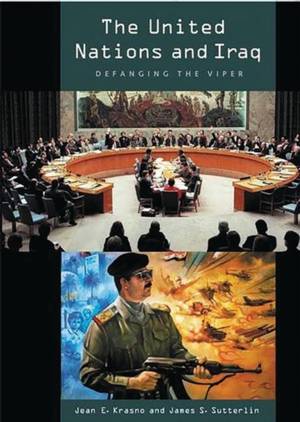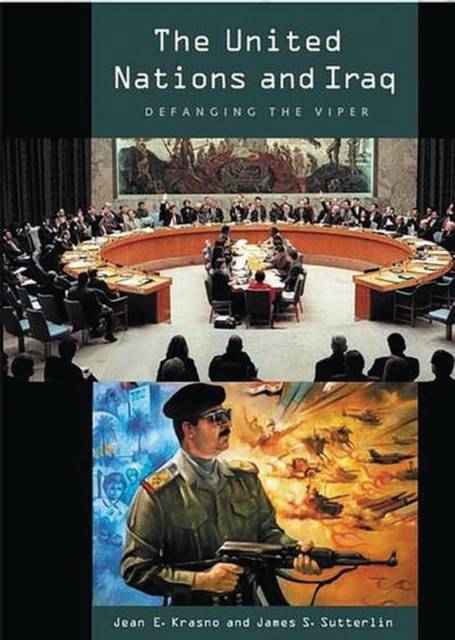
- Retrait gratuit dans votre magasin Club
- 7.000.000 titres dans notre catalogue
- Payer en toute sécurité
- Toujours un magasin près de chez vous
- Retrait gratuit dans votre magasin Club
- 7.000.000 titres dans notre catalogue
- Payer en toute sécurité
- Toujours un magasin près de chez vous
The United Nations and Iraq
Defanging the Viper
Jean E Krasno, James S Sutterlin, Jean E Kranso
Livre broché | Anglais
76,45 €
+ 152 points
Description
Following the Gulf War from 1991 to 1998, the United Nations Special Commission (UNSCOM) was created to unveil and eliminate Iraq's weapons of mass destruction through inspections. This study describes how UNSCOM was designed to maintain its independence and authority, detailing the dramatic events that occurred as UNSCOM attempted to deal with an intransigent Iraq. Krasno and Sutterlin outline the special intelligence skills that UNSCOM developed over the years in response to Iraqi tactics. They also provide an accounting of UNSCOM achievements and analyze remaining concerns.
Along with documentary research, much of the information in this book was obtained through a series of interviews with key players, including the Executive Directors, several UNSCOM inspectors, and a number of ambassadors to the United Nations who were directly involved. Concerns about Iraq's remaining weapons capabilities, particularly its biological and chemical weapons, have become increasingly relevant since the September 11, 2001 terrorist attacks and the ensuing anthrax threat. This study provides insight about the disarming of Iraq, as well what lessons can be learned from the UNSCOM experiment.Spécifications
Parties prenantes
- Auteur(s) :
- Editeur:
Contenu
- Nombre de pages :
- 264
- Langue:
- Anglais
Caractéristiques
- EAN:
- 9780275978396
- Date de parution :
- 28-02-03
- Format:
- Livre broché
- Format numérique:
- Trade paperback (VS)
- Dimensions :
- 154 mm x 237 mm
- Poids :
- 412 g







